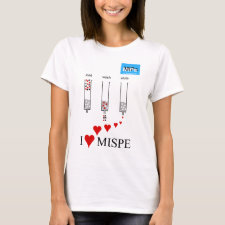
Authors: Zhang WQ, Duan DW, Liu SQ, Zhang YS, Leng LP, Li XL, Chen N, Zhang YP
Article Title: Metal-organic framework-based molecularly imprinted polymer as a high sensitive and selective hybrid for the determination of dopamine in injections and human serum samples.
Publication date: 2018
Journal: Biosensors and Bioelectronics
Volume: 118
Page numbers: 129-136.
DOI: 10.1016/j.bios.2018.07.047
Alternative URL: http://www.sciencedirect.com/science/article/pii/S0956566318305499
Abstract: A highly sensitive and selective molecular imprinting polymer (MIP) sensor was fabricated based on polypyrrole (PPy)/ZIF-67/Nafion hybrid modified glassy carbon electrode (GCE) for the determination of dopamine (DA). The ZIF-67 material was facilely prepared by using hydrothermal synthesis method; subsequently, the PPy/ZIF-67/Nafion hybrid was obtained through a one-pot synthesis method. The physical properties of the materials and the modified sensors were investigated by using X-ray powder diffraction (XRD), Fourier transform infrared spectroscopy (FTIR), Nitrogen adsorption-desorption isothermal (BET), X-ray photoelectron spectroscopy (XPS), Scanning electron microscope (SEM) and Atomic force microspectroscopy (AFM) apparatus. Cyclic voltammetry (CV), differential pulse voltammetry (DPV) and electrochemical impedance spectroscope (EIS) were used to evaluate the electrochemical performance of the sensors. The influence factors controlling the performance of the MIP sensor were studied and included scan rate, pH value and scan cycles. Under optimal conditions, DPV peak was linearly related to DA concentration over two concentration intervals (0.08-100 μM and 100-500 μM). The detection limit of PPy/ZIF-67-MIPs/Nafion/GCE sensor for DA was 0.0308 μM (S/N = 3) and sensitivity was equal to 1.656 μA μM cm-2. Furthermore, good reproducibility, long-term stability and favorable selectivity were obtained in the experiment. Moreover, the fabricated MIP sensor was successfully applied in the determination of DA concentrations in injection and human serum samples with satisfactory recoveries
Template and target information: dopamine, DA
Author keywords: PPy, ZIF-67-MIPs, Nafion hybrid, MIP sensor, electrochemical detection, dopamine



Join the Society for Molecular Imprinting

New items RSS feed
Sign-up for e-mail updates:
Choose between receiving an occasional newsletter or more frequent e-mail alerts.
Click here to go to the sign-up page.
Is your name elemental or peptidic? Enter your name and find out by clicking either of the buttons below!
Other products you may like:
 MIPdatabase
MIPdatabase









